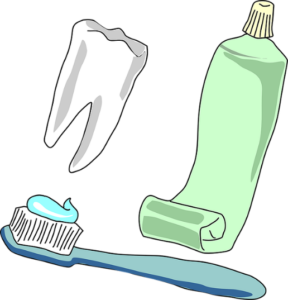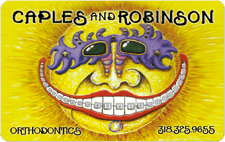71201 Orthodontist

It has long been known that dairy products contain high amounts of calcium, which is important for developing and maintaining strong teeth and bones. However, not all dairy works in the same ways. Did you know that a recent study has found that cheese can actually help protect teeth against cavities?
How does cheese prevent cavities?
Eating cheese helps stimulate the production of saliva in your child’s mouth, which washes away sugars, acids, and bacteria on their teeth. Additionally, cheese is a great source of both calcium and phosphorous, which can help strengthen tooth enamel. What’s more, the scientists who performed the study found that some of the other compounds found in cheese seem to adhere to tooth enamel, further protecting the teeth from acids in the mouth.
Are all cheeses the same?
No, some cheeses are healthier for your family than others. To get the greatest benefit from your child’s cheese intake, stick with real cheese varieties, rather than processed cheeses. American cheese, cheese dips, and pre-packaged cheese products, such as those found in jars or spray cans, have added sugars to enhance their flavor. These sugars can be harmful to teeth, rather than protecting them. In addition, these types of cheese products contain a significantly reduced amount of actual cheese content. These processed cheeses can even wear down tooth enamel, increasing risk of decay.
What kinds of cheese should I give my child?
There are hundreds of types of real cheese available, which are packed with calcium and great for tooth protection. If your child enjoys aged cheeses, Cheddar, Swiss, Monterey jack are all tasty options. If he or she prefers softer cheeses, Mozzarella, Brie, or Camembert may be a great way to make your child smile. Gorgonzola, Roquefort, and other similar cheeses have much to offer for a child with a more expansive palate.
What if we’re on a low-fat diet?
Good news! The fat content of your cheese choices do not affect its ability to protect your child’s teeth. The low-fat or non-fat versions of your child’s favorite varieties of cheese contain just as much calcium, phosphorous, and other tooth-protecting compounds as the full-fat varieties.
With so many great options to choose from, consider offering your child cheese instead of sugary or starchy options for a snack or end of meal treat. Cheese tastes great and is healthy for your child and their teeth. For more ideas for healthy snacking, contact our dental office.
Resource: https://www.sciencedaily.com
2210 Forsythe Ave., Monroe, LA 71201



 When most people consider the benefits of getting braces, they tend to focus on cosmetic improvements. A better smile is an obvious benefit to orthodontic treatment, but there are plenty more improvements than what you’ll see on the surface.
When most people consider the benefits of getting braces, they tend to focus on cosmetic improvements. A better smile is an obvious benefit to orthodontic treatment, but there are plenty more improvements than what you’ll see on the surface. Did you know your oral health can impact your overall health? We’ve compiled a list of 5 tidbits about your teeth and oral health.
Did you know your oral health can impact your overall health? We’ve compiled a list of 5 tidbits about your teeth and oral health. Calcium is an important mineral for building strong, healthy teeth. Not everyone can tolerate the lactose found in dairy, which is often a prime source for calcium. There are a wide variety of options available to get the calcium you need. Here are six options rich in calcium:
Calcium is an important mineral for building strong, healthy teeth. Not everyone can tolerate the lactose found in dairy, which is often a prime source for calcium. There are a wide variety of options available to get the calcium you need. Here are six options rich in calcium: Most comprehensive orthodontic treatment will involve the use of braces or aligners. In either case, your treatment involves minor movement of your teeth to correct misalignment. This ensures both a straight smile and an even bite.
Most comprehensive orthodontic treatment will involve the use of braces or aligners. In either case, your treatment involves minor movement of your teeth to correct misalignment. This ensures both a straight smile and an even bite. Did you know that dentistry dates back to around 400-300 BC? Hippocrates and Aristotle actually contemplated ways to straighten teeth and fix certain dental conditions. Archaeologists have found numerous mummies with what appears to be metal bands wrapped around their teeth. Researchers believe this is the first sign of ancient orthodontics put in use in attempt to straighten teeth.
Did you know that dentistry dates back to around 400-300 BC? Hippocrates and Aristotle actually contemplated ways to straighten teeth and fix certain dental conditions. Archaeologists have found numerous mummies with what appears to be metal bands wrapped around their teeth. Researchers believe this is the first sign of ancient orthodontics put in use in attempt to straighten teeth. When you have braces, brushing your teeth becomes even more important – and more challenging – than ever before. To ensure your teeth remain clean and healthy, try these helpful tips for effective brushing when you have braces:
When you have braces, brushing your teeth becomes even more important – and more challenging – than ever before. To ensure your teeth remain clean and healthy, try these helpful tips for effective brushing when you have braces: Are you planning on having orthodontic treatment? In some cases, patients may be referred to our office for oral surgery prior to starting their orthodontic treatment. Below are some of the reasons why this can occur.
Are you planning on having orthodontic treatment? In some cases, patients may be referred to our office for oral surgery prior to starting their orthodontic treatment. Below are some of the reasons why this can occur.



